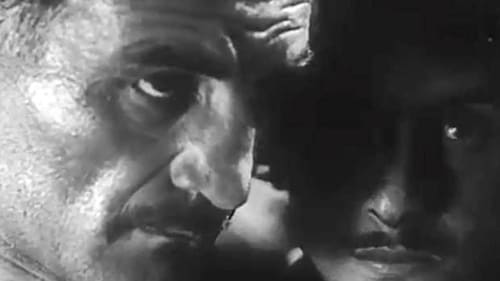
Director
Христина, крестьянка из захолустной деревни, решила уехать в город в поисках лучшей жизни. Но, не найдя там ни лучшей жизни, ни счастья, она погибает…

Writer
О жизни и деятельности Григория Саввича Сковороды — украинского философа, поэта, гуманиста, демократа и просветителя XVIII века.

Director
О жизни и деятельности Григория Саввича Сковороды — украинского философа, поэта, гуманиста, демократа и просветителя XVIII века.

Director
Adapted from the opera written by the composer Semen Hulak-Artemovsky.

Producer
This film is the first adaptation of an operetta written by Ukrainian composer Mykola Lysenko. It follows the trials and tribulations of Natalka and Peter (Petro). The sweethearts planned to get married; however, Natalka's father does not approve of the marriage because Petro was not affluent enough to keep Natalka in the manner he thought that she should be kept. Petro goes off to earn the required fortune.

Director
This film is the first adaptation of an operetta written by Ukrainian composer Mykola Lysenko. It follows the trials and tribulations of Natalka and Peter (Petro). The sweethearts planned to get married; however, Natalka's father does not approve of the marriage because Petro was not affluent enough to keep Natalka in the manner he thought that she should be kept. Petro goes off to earn the required fortune.

Writer
Крепостного юношу Ивася господин сдает на Кавказ в солдаты, а его невесту отправляет в публичный дом. Там на чужбине, под влиянием революционера Гаврилова, разжалованного в солдаты, герой становится сознательным борцом и, вернувшись в родную деревню, поднимает крестьянское восстание. Фильм сохранился не полностью: отсутствует эпизод с участием Тараса Шевченко.

Director
Крепостного юношу Ивася господин сдает на Кавказ в солдаты, а его невесту отправляет в публичный дом. Там на чужбине, под влиянием революционера Гаврилова, разжалованного в солдаты, герой становится сознательным борцом и, вернувшись в родную деревню, поднимает крестьянское восстание. Фильм сохранился не полностью: отсутствует эпизод с участием Тараса Шевченко.

Producer
The film attempts to display an episode of the liberation movement in Ukraine - the uprising of Kolievs (serfs, artisans and fishermen) against the tyranny of the feudal lords and the Polish nobility, which ended with a brutal massacre performed by a Russian punitive expedition in 1768.

Screenplay
The film attempts to display an episode of the liberation movement in Ukraine - the uprising of Kolievs (serfs, artisans and fishermen) against the tyranny of the feudal lords and the Polish nobility, which ended with a brutal massacre performed by a Russian punitive expedition in 1768.

Director
The film attempts to display an episode of the liberation movement in Ukraine - the uprising of Kolievs (serfs, artisans and fishermen) against the tyranny of the feudal lords and the Polish nobility, which ended with a brutal massacre performed by a Russian punitive expedition in 1768.

Writer
A peasant visits the DneproGES construction.

Director
A peasant visits the DneproGES construction.

Director
Картина состоит из большого числа эпизодов, органически не связанных друг с другом. Крестьянин-бедняк тщетно пытается приделать к сохе нож, чтобы заменить им лемех. Грустно смотрят на не вспаханное поле крестьянки. Бездействует завод, но приходят рабочие и пускают его. Восстанавливаются шахты, движутся вагонетки, наполненные углём, запускаются станки. И вот уже крестьянин запрягает лошадь в плуг, засевает поле…

Art Designer
The lost film about the peasant rebellion of the 18th century in Ukraine, led by Maksym Zalizniak and Ivan Honta. The history of the haydamak movement became a trigger for authors to have experiments in the field of film language: shooting against the background of black velvet, focus on the static character of the picture, the sculptural nature of composition mise-en-scène solutions, replacement of dramatic collisions with cinema engravings depicting the historical past.

Writer
The lost film about the peasant rebellion of the 18th century in Ukraine, led by Maksym Zalizniak and Ivan Honta. The history of the haydamak movement became a trigger for authors to have experiments in the field of film language: shooting against the background of black velvet, focus on the static character of the picture, the sculptural nature of composition mise-en-scène solutions, replacement of dramatic collisions with cinema engravings depicting the historical past.

Director
The lost film about the peasant rebellion of the 18th century in Ukraine, led by Maksym Zalizniak and Ivan Honta. The history of the haydamak movement became a trigger for authors to have experiments in the field of film language: shooting against the background of black velvet, focus on the static character of the picture, the sculptural nature of composition mise-en-scène solutions, replacement of dramatic collisions with cinema engravings depicting the historical past.













